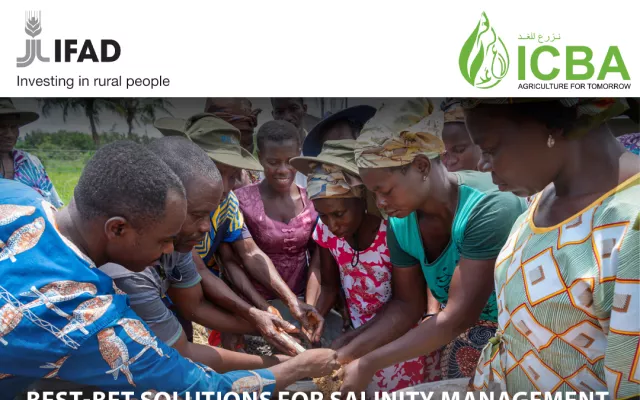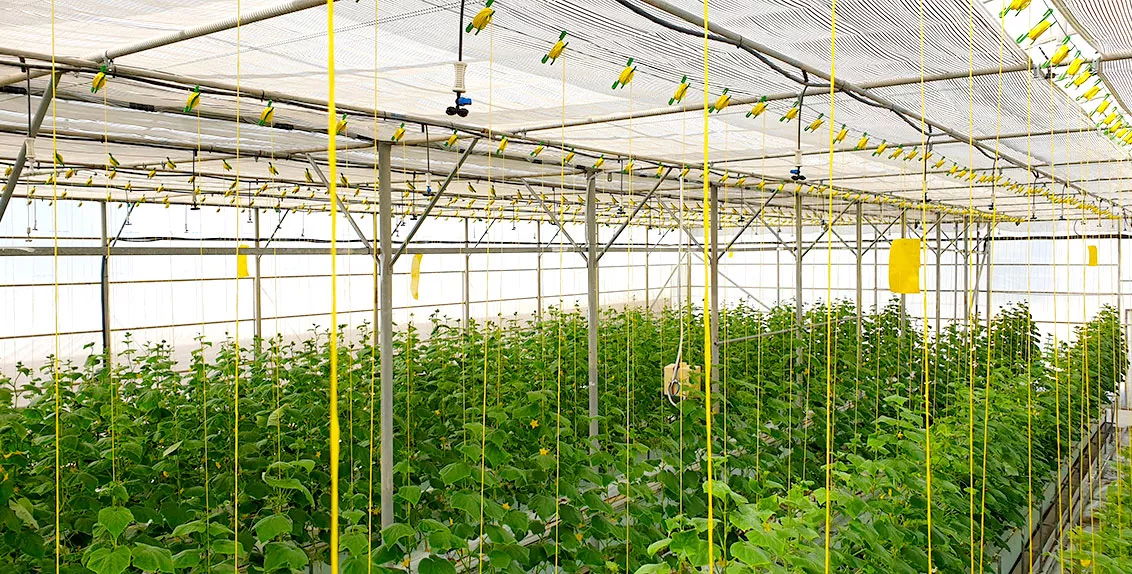ICBA, Spanish university to explore water-saving innovations for controlled environment agriculture
30 August 2021
The International Center for Biosaline Agriculture (ICBA) and the University of Almeria (UAL), Spain, have agreed to work together to develop innovative solutions for sustainable agricultural production in marginal environments.
The agreement was formalized through a memorandum of understanding signed on 30 August 2021 by Dr. Tarifa Alzaabi, Acting Director General of ICBA, and Dr. Diego Luis Valera Martínez, UAL’s Vice Rector of Research and Innovation.
Under the agreement, ICBA and UAL will collaborate on creating innovative technologies for saving water and energy in controlled environment agriculture (CEA) systems.
They will also share knowledge and exchange studies on applied research and development to improve agricultural productivity and sustainability in salinity-affected areas.
Moreover, ICBA and UAL will jointly organize events like scientific conferences and training workshops; exchange scientists, specialists; and co-supervise doctoral students.
As freshwater resources are getting scarcer, especially in the world’s marginal environments, which are already facing climate change and salinity issues, agricultural production is expected to take a hit in the future.
Therefore, it is important to develop agri-technologies that are sustainable and able to produce more food to meet the future demand. Estimates show that the current demographic trends are likely to result in a 60-percent increase in demand for food, feed and fiber by 2050.
Controlled environment agriculture systems help to increase agricultural production under harsh environmental conditions. These systems have many advantages compared to traditional open-field systems. They can provide much higher yields with lower water requirements. Nonetheless, these systems are not perfect and have certain inefficiencies related to water and energy use. For example, the hydroponic, fan and pad cooling systems still require a considerable amount of fresh water and energy to run non-stop.
For this reason, ICBA partnered with UAL to search for ways to reduce water and energy consumption. These could include using alternative water resources, renewable energy and other sustainable technologies to produce more food, save more resources and protect the environment.
Over the past nearly two decades, ICBA has been working with a wide range of partners in countries in the Middle East and North Africa (MENA), sub-Saharan Africa, Central Asia and the Caucasus to develop, test and introduce non-traditional crops and technologies in marginal environments. The center has also been promoting sustainable farming practices that include the use of alternative types of water for agriculture and aquaculture.










